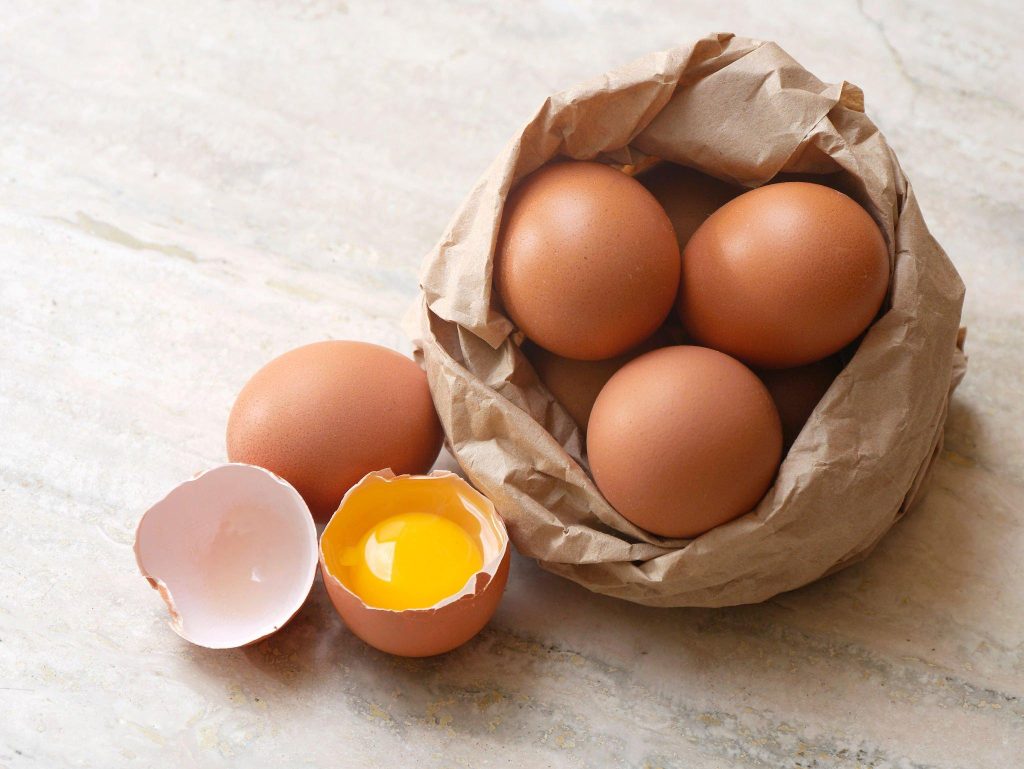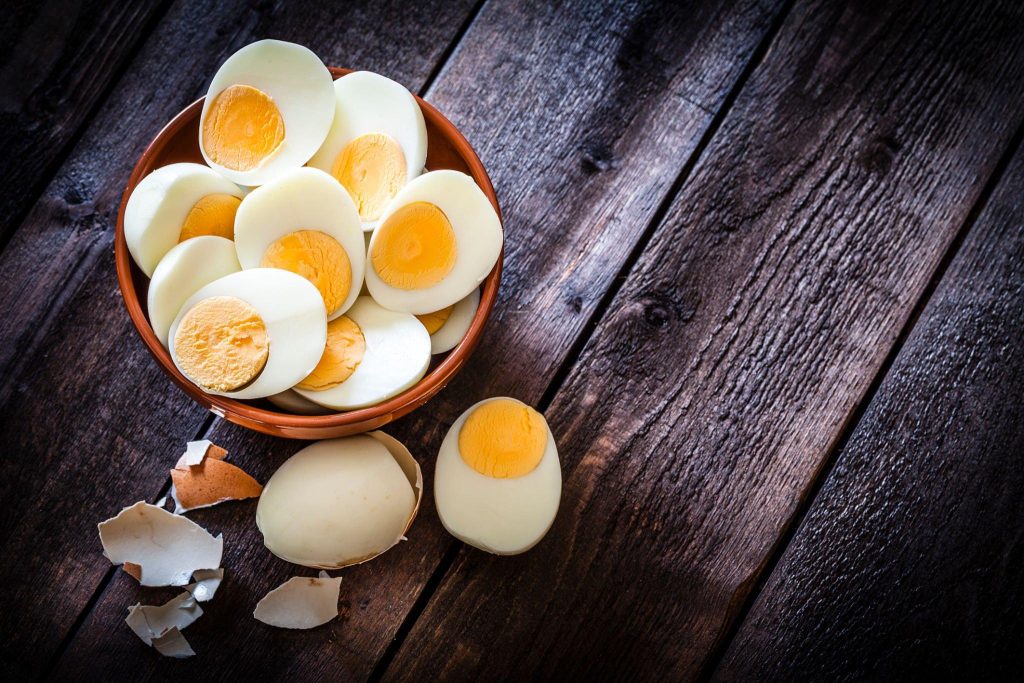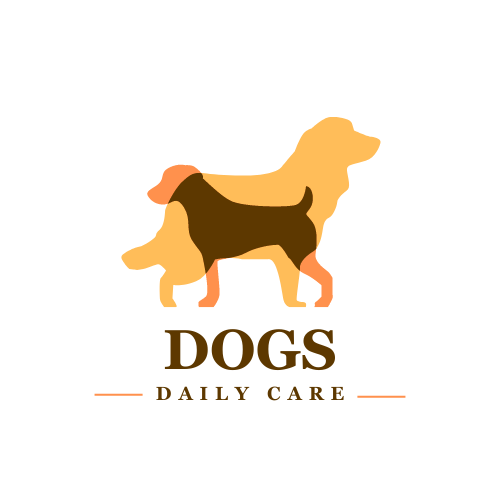Can Frenchies Eat Eggs? – All You Need To Know
French Bulldogs, with their bat-like ears and expressive eyes, have stolen the hearts of many. Just like any loving pet owner, ensuring a safe and nutritious diet for our adorable “Frenchies” becomes a top priority. With a sea of dietary information available, it can be daunting to discern which foods are beneficial and which could be harmful.
One common dietary query that surfaces among Frenchie enthusiasts is about the humble egg. Rich in nutrients and commonly available, eggs might seem like an excellent addition to their meals. But the real question is: Are eggs a safe treat for French Bulldogs?
In this comprehensive guide, we’ll delve deep into the world of eggs, exploring their nutritional value, potential risks, and how they fit into a Frenchie’s diet. Whether you’re a seasoned Frenchie parent or a new one, this guide aims to shed light on all your egg-related queries.
Nutritional Benefits of Eggs
Eggs are often called nature’s superfood, and for a good reason. Packed with nutrients, they offer a punch of benefits not just for us humans but for our furry friends too.
First off, they’re a powerhouse of protein. For our active Frenchies, this means strong muscles and lots of playful energy. The high-quality protein in eggs supports muscle growth and repair, essential for our energetic buddies.
But it’s not just about the protein. Eggs boast essential amino acids that aid in various bodily functions. Plus, they’re filled with vitamins like A, B12, and D, along with minerals like iron and selenium. These play a role in keeping our French Bulldogs’ coat shiny, their eyes bright, and their overall health in tip-top shape.
In short, when fed in moderation and prepared correctly, eggs can be a beneficial addition to a Frenchie’s diet, providing them with vital nutrients to keep them happy and healthy.
Raw Eggs vs. Cooked Eggs
When considering adding eggs to your Frenchie’s diet, the first decision you’ll encounter is raw versus cooked. Each has its merits and drawbacks, so let’s break it down.
Raw Eggs

Starting with raw eggs, many argue they provide a more natural, unaltered nutrient profile. Enthusiasts believe raw eggs offer enzymes and nutrients that can be beneficial for our French Bulldogs. However, it’s not all sunny-side up.
One of the main concerns with feeding raw eggs is the risk of salmonella, a bacteria that can harm both dogs and humans. Additionally, avidin, a protein found in raw egg whites, can interfere with the absorption of biotin, a crucial B-vitamin. This can potentially lead to skin and coat problems for your Frenchie.
Cooked Eggs

On the flip side, cooked eggs, when prepared without any additives or seasonings, can be a safer choice. Cooking neutralizes potential threats like salmonella and reduces avidin levels, ensuring biotin is more easily absorbed.
The ways to cook eggs for your Frenchie are versatile: boiled, scrambled, or even poached. As long as they’re free from spices, salt, or butter, they can be a tasty and nutritious treat. Plus, many French Bulldogs love the texture and taste of a well-cooked egg!
In conclusion, while both raw and cooked eggs have their arguments, it’s essential to weigh the benefits against the risks. By staying informed and observing your Frenchie’s reactions, you can make the best choice for their health and happiness.
Potential Allergies and Side Effects
While eggs offer numerous benefits, like all foods, there’s always a potential for allergies or side effects. Being informed can make all the difference in ensuring our French Bulldogs get the best without the risks.
Allergic reactions to eggs in dogs, although rare, do occur. Signs to watch out for include itching, swelling, redness, or digestive issues like diarrhea or vomiting. If you’re introducing eggs to your Frenchie’s diet for the first time, start small. A tiny portion can help you gauge if there are any immediate reactions.
Another aspect to be aware of is the calorie count. While eggs are nutritious, they’re also calorie-dense. Overfeeding can contribute to weight gain, especially in breeds like French Bulldogs, known to be prone to obesity. It’s essential to strike a balance and ensure eggs are part of a well-rounded diet.
Lastly, remember that every dog is unique. What works for one Frenchie might not work for another. Always monitor their behavior and physical signs after introducing new foods. And, if ever in doubt, a quick chat with your veterinarian can provide guidance tailored to your furry friend’s needs.
How Often and How Much?
Now that we’ve dived into the world of eggs and French Bulldogs, the next pressing question is: how often and how much? After all, moderation is key to ensuring our Frenchies enjoy the benefits without the drawbacks.
As a general rule of thumb, eggs should be considered a treat or supplement rather than a primary food source. For a medium-sized Frenchie, half to one whole egg once or twice a week is a good starting point. It provides them with those extra nutrients without overloading their calorie intake.
It’s worth noting that size and activity level matter. A more active Frenchie might burn off those extra calories more efficiently, while a laid-back companion might require less. Observing your dog and possibly consulting with a vet will help tailor the perfect egg-serving size and frequency.
Lastly, always remember to introduce any new food, including eggs, gradually. This step-by-step approach not only helps in gauging their reaction but also ensures their digestive system can adapt smoothly.
Precautions When Feeding Eggs to Your Frenchie
Feeding eggs to your Frenchie? Great! But, like with all treats, it’s essential to proceed with caution. Here are a few pointers to ensure a happy and healthy egg experience.
First and foremost, skip the seasonings. While a pinch of salt or dash of pepper might be tasty for us, it’s best to keep eggs plain for our four-legged pals. Seasonings can upset their stomachs or even be harmful.
Steer clear of additives. Butter, oils, or other cooking fats might be tempting to enhance flavor, but they can be heavy on a Frenchie’s tummy. Stick to simple cooking methods, like boiling or scrambling without extras.
Remember the shell! While some argue eggshells offer calcium, they can also be a choking hazard. If you decide to include them, ensure they’re finely ground.
Finally, always observe your Frenchie after introducing new foods. Look for any unusual behavior or signs of discomfort. Being attentive ensures your buddy stays in top shape while enjoying their egg treat.
Frequently Asked Questions (FAQs)
1. Can I feed my Frenchie raw eggs every day?
While raw eggs have certain benefits, daily consumption can pose risks like salmonella and interference with biotin absorption. Moderation is key. Consult your vet for tailored advice.
2. My dog loves the eggshell. Is it safe?
Eggshells can be a source of calcium, but they may pose a choking risk. If you choose to feed them, ensure they’re finely ground to avoid any hazards.
3. I’ve heard eggs can cause biotin deficiency. Is this true?
Raw egg whites contain avidin, which can inhibit biotin absorption. However, this usually becomes a concern only with excessive raw egg consumption. Cooked eggs reduce this risk.
4. Are there any signs to watch for if my Frenchie is allergic to eggs?
Yes, signs of an egg allergy can include itching, redness, swelling, or digestive issues. Always introduce new foods gradually and monitor your dog’s reactions.
5. I’ve heard eggs can cause biotin deficiency. Is this true?
Raw egg whites contain avidin, which can inhibit biotin absorption. However, this usually becomes a concern only with excessive raw egg consumption. Cooked eggs reduce this risk.
6. Are there any signs to watch for if my Frenchie is allergic to eggs?
Yes, signs of an egg allergy can include itching, redness, swelling, or digestive issues. Always introduce new foods gradually and monitor your dog’s reactions.
7. How can I make eggs more interesting for my Frenchie?
While it’s essential to avoid seasonings and additives, you can experiment with different cooking methods: boiled, scrambled, or poached. Sometimes, a change in texture or presentation can pique their interest.
Conclusion
Navigating the dietary needs of our beloved French Bulldogs can often feel like treading through a maze. But when it comes to eggs, the takeaway is clear: they can be a nutritious, tasty treat for our Frenchies when given in moderation and with the right preparations. By staying informed, observing our pets, and occasionally seeking expert guidance, we can ensure the health and happiness of our four-legged companions.
Whether you’re contemplating the raw vs. cooked debate or gauging the right portion, always prioritize your Frenchie’s well-being. Every bite they take and every wag of their tail is a testament to the care and love we shower on them. Happy feeding!







